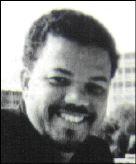
Philp
Author:
Geoffrey Philp
Reviewer:
Tanya Batson
Publisher: Peepal Tree Press
THE BOOK Benjamin, My Son by Geoffrey Philp presents a picture of the harrowing leap from boyhood to manhood in Jamaica.
The leap is a treacherous one, not merely because becoming an adult is such a confusing thing, but because like Jason Stewart, the protagonist, too many young men have no real father figure to connect with.
As such, despite the age of the protagonist (he is in his late 20s), Benjamin, My Son is a coming of age story.
PLOT
The title refers to the name given to Jason by a Rasta elder, Papa Legba, and speaks to the importance of fathering, and the result that its absence brings.
Jason Stewart has been living in Miami, in self-imposed exile. However, upon the death of his stepfather, a renowned politician, he returns to Jamaica.
Once there, he begins to run into old friends and finds himself face to face with the past he was running from. He again meets with all the men who taught him to be a man, from teachers in high school to Papa Legba and, most importantly, his friend, Rueben, who taught him to stand up for himself.
CHARTING CONNECTIONS
The book takes a microcosm of Jamaican life to present an idea of the larger picture. Most of the characters are past students of Jamaica College, juxtaposed with one of Kingston's ghettos, Stand Pipe.
With this juxtaposition, Benjamin, My Son attempts to chart connections between the issues of education, class, race, violence and politics that plague the island.
Together, Stand Pipe and Jamaica College (especially Jamaica College at a time when most of the students were from the privileged classes) present much of the make-up of Jamaica. At the core of all this, is a question of manhood in Jamaica.
Benjamin, My Son is set in Kingston during the 1980s. As such, it takes place in one of the most violent periods of Jamaican political history, when party politics reigned, but the politicians were just beginning to lose their grip on the criminal elements they unleashed.
The major political figures bear striking resemblances to some of Jamaica's major political figures, who act as the archetypal father figures.
With the focus on politics Benjamin, My Son shows the violent rituals associated with manhood. These stem from a father knocking his son almost unconscious to teach him obedience, to the senseless, violence pranks played by the older bigger boys in school.
In selecting a school like Jamaica College, one of the traditional high schools, Philp makes a clear link between the education system and politics, and the issues of class.
Whatever else may be fictional, the assertion of how many Jamaica College Old Boys actually end up in politics is not. Though the percentage may now have changed, a great number of the island's politicians at one point were among the blue uniformed young men of Old Hope Road.
Additionally, it also brings forward the question of our raising so many of the island's young men by separating them from the other sex.
EPHEMERAL ROLES
The women are almost dismissed, given little more than ephemeral roles. Despite that, the book clearly suggests that most of the females have done their job of mothering, but that is not enough.
Jason's girlfriend, Nicole, is given the behind every great (and even mediocre) man stands some woman. She is hardly more than a shadow, but supposedly, her love bears redemptive values for Jason.
She is the Medea in this modern-day Jason's search for the golden fleece of manhood. She calls him on his pretences and obstinate clinging to useless pride. But she is never given the chance to be a person in her own right.
The text is easy to read and there are a few moments of some wonderful prose. A description of late evening was beautifully done:
"Night was creeping in from New Standpipe and the streetlights buzzed to life. Fireflies flitted over the treetops. Women were coming home from their work in New Stand Pipe, their heels pick-pocking against the sidewalk, the wind toying with the fringes of their skirts. Tired and worn, weighed down by the day's cares rent, the children, the men who never came home - they dragged their shadows across the hard, uneven pavement. Dark curled around their bodies."
SHORTCOMINGS
The book's shortcoming is in properly outlining relationships. Benjamin/ Jason's relationship with all the men in his life, all of whom he is able to come into contact with for the two or three days that the book covers, is important to his realization of the man he should be.
Because of this, the climax, based on a saga as old as Cain and Abel, is unfulfilling.
One does not understand the relationship between Jason and his brother well enough to know why they are the men that they are and take either side in the conflict.
Even so, Benjamin, My Son fills a very important gap in Caribbean literature. It provides the relevant stories to our lives today. It's success is very limited, but it remains necessary.

